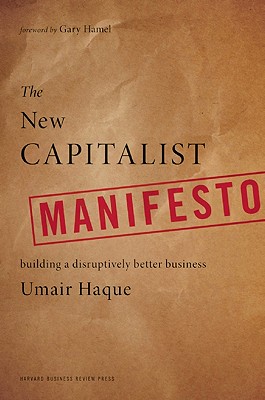Elon Musk On Being CEO
Unfortunately, I came to the conclusion I was better than the CEOs we hired. If I’m not CEO, I can’t make the inventions happen in the way they need to happen. Professional managers—MBA CEOs—are not very creative or adaptable, and their skills don’t suit a startup.
Business is like a multidimensional probabilistic chessboard. The rules aren’t set, and the same moves don’t always make you win. A lot of people can be really good in a set-piece battle; my biggest differentiating skill is I can invent new pieces.
Review: Damned Busters: Hell to Pay, Book 1

Damned Busters: Hell to Pay, Book 1 by Matthew Hughes
A thoroughly enjoyable story, that centers on a highly functional autistic actuary who accidentally summons a demon but refuses to sell his soul to Satan, which has a series of repercussions, including Hell going on strike. The book is delivered with elegant wit, punctuated by humorous passages, and is flat out funny.
The incredibly well developed cast of characters keeps you eager to turn the page. This ensemble includes a demon sidekick who sounds like a 1920’s mobster, a rich bitch, sniveling middle management, Satan, and even a televangelist.
Don’t read too much into the religious component, it’s fun regardless of your perspective. You can read the first 10,000 words , and I encourage you to do so. You’ll be hooked, and the paperback is only $8, the Kindle? $4. I’m eagerly awaiting the sequel scheduled for later this year.
Review: The New Capitalist Manifesto by Umair Haque
Fundamentally redefining capitalism in non-narrow terms. A full spectrum understanding of cost, debt, capital.

The New Capitalist Manifesto: Building a Disruptively Better Business
“Constructive capitalists aren’t merely seeking to be better than rivals in yesterday’s terms. They are fundamentally redefining what success means, to encompass the well-being of people, communities, society, and future generations; to return what you might call profit ‘plus’; profit plus social, environmental, human, and as yet unknown -unexplored kinds of – returns.”
Skip the preface. Way too fuzzy for me. Once Haque gets going in Chapter 1 though, it’s a fun ride. He does a masterful job of decimating every construct that underpins the economy as it is and points out early indicators of what it will be (assuming we can build it).
The typology of thin and thick value is great – thin is generated by a business that very narrowly defines profit, debt, success, capital. Think Gillette’s fetish for product differentiation. Thick, on the other hand depends on a deeper understanding of how business works, who it impacts, and how; and acts accordingly. Think microfinance – it builds human capital, generates financial capital, and doesn’t cost the future.
This is a key part of Haque’s thesis. By failing to account for the full costs of the Industrial economy machine, we have taken on an unsustainable debt load (environmental, human, fiscal) that eventually blows up. Rethinking what comprises capitalism enables us to transition away from this rudimentary understanding of accounting.
Anyway, the book is a must read. Especially if the following resonates with you:
“What we need, then, is a new generation of renegades, laying deeper, stronger institutional cornerstones.”
That’s precisely who this book is for. This is the kind of person who has a copy of ReWork, Brave New War, and Reinventing Collapse to put Umair’s book next to. Short, utilitarian texts, for leaders who are secure enough in their ability to innovate and execute that they are more focused on how to think, rather than what.
So then the question becomes. If this is the argument for a better, constructive form of capitalism, what does a business that runs on all of its principles look like? As it turns out, I’m working on that right now with a very smart group of people in the form of Picture This.
Review: Equations of Life
Simply, I wouldn’t go out of my way to read this, but if you have a review copy laying around and a few hours to kill, it’s not bad.

Equations of Life by Dr. Simon Morden.
Equations of Life isn’t a particularly well written book. By and large, it feels superfluous. The technology isn’t all that interesting (virtual reality’s done better elsewhere) and the vision of a dystopian future is limited (crowded subways, nuns with guns, and automated cars?). There’s a bit of a slog in the middle where nothing moves forward despite all the jostling around, but it is action packed (someone else mentioned, it reads like a movie), and you always want to know what’s coming next.
Better stated, you’re invested in seeing what happens to Samuil Petrovitch, our genius, weak-of-heart but strong-of-will protagonist with a penchant for snark in the face of heavy weaponry. He definitely keeps your interest piqued – sometimes in spite of his one-liners. (He’s why this gets 4 stars on Amazon instead of 3.)
If you have time to kill, hanging out with Petrovitch isn’t a bad way of spending it, though I’m sure you can find better.
Review: Biopunk
A tremendous introduction to one of the most exciting branches of individual superempowerment emerging today.
Biopunk: DIY Scientists Hack the Software of Life.
Biopunks have not achieved any major scientific breakthroughs. Maybe they never will. But they all exhibit a goofy joy in what they do, like they’re getting away with something. Because rather than wait for science to be done to them, they have decided to do science. No one else can tell them what they can and can’t do. They will do it themselves. And with a little luck and talent, they might do something cool.
The book is structured around the key figures in this movement today, and tells their stories quite well. It’s not an exhaustive academic tome and doesn’t try to be (appropriately so). I started out pretty familiar with this subject matter (having done much of the same research myself, including interacting with some of the people in the book), but learned a few things and ‘met’ some very interesting people along the way.
Marcus Wohlsen does a great job laying out the contours of the movement. You get the culture, the philosophy they build on, the historical backing for their work, where they currently stand (without some major leaps, there’s not a big chance of anyone solving cancer in their home wetlab) and where they’re possibly headed. He also addresses the security threat (of course there is one, but the problem is social deviants, not these DIY garage hackers of living things).
Overall, it becomes clear that the most interesting times for biopunk are ahead. They’re limited by a lack of cheap toolkits, good enough processes, funding, and knowledge. As they accomplish more over the coming years, they’re going to have to deal with regulation and taking things to market. It’s an interesting frontier and Wohlsen does this justice.


